Nearly 300 apartments damaged in Russian drone attack in Ukraine
×
EDITION
Türkçe
English
BHSC
Pусский
Français
العربية
Kurdî
کوردی
Shqip
فارسی
македонски
Bahasa Indonesia
Español
-
Türkiye -
World -
Economy -
Politics -
Energy -
Sports -
Infographics -
Analysis -
Photo -
Video
Mandatory cookies are used on our website www. aa.com.tr in order to provide you with a better service. These cookies cannot be disabled via the «Cookie Control Panel». You can view the cookies used on our site via the «Cookie Control Panel» and change your preferences.
aa.com.tr in order to provide you with a better service. These cookies cannot be disabled via the «Cookie Control Panel». You can view the cookies used on our site via the «Cookie Control Panel» and change your preferences.
Necessary Cookies
This cookie is used to distinguish between humans and bots. This is beneficial for the web site, in order to make valid reports on the use of their web site.
Functional Cookies
Remembers the user’s selected language version of a website.
Performance/Analytical Cookies
Registers a unique ID that is used to generate statistical data on how the visitor uses the website.Used by Google Analytics to throttle request rate.
Accept
Reject
Advertising/Marketing Cookies
This cookie is used to collect information on consumer behavior, which is sent to Alexa Analytics. (Alexa Analytics is an Amazon company.)
(Alexa Analytics is an Amazon company.)
Accept
Reject
Kennan Cable No. 45: Six Reasons the “Opposition Platform” Won in Eastern Ukraine
At a large precinct in a regional city of Zaporizhya in eastern Ukraine—where I was an international election observer during the last parliamentary election on July 21—vote counting proceeded well into the night. A room full of exhausted Precinct Election Commission (PEC) members, as well as domestic and international observers, seemed under the spell of a monotonous repetition of “shest, shest, shest” (“six” in Russian)—a PEC member was announcing the winner of each individual ballot as she moved it from one big unsorted pile into respective “party” piles. Number six was the number assigned to the “Opposition Platform—For Life” party, led by oligarch Yuriy Boyko. Known for its pro-Russian alignment, the party was founded in 2018 after it split from “Opposition Block,” formed in 2014 by six parties that opposed the Maidan Revolution.
Known for its pro-Russian alignment, the party was founded in 2018 after it split from “Opposition Block,” formed in 2014 by six parties that opposed the Maidan Revolution.
The outcome of the nationwide election was rather predictable: President Zelenskу’s party “The Servant of the People” gained a majority in the new Verkhovna Rada (Ukraine’s Parliament) by winning in all but three regions of Ukraine—Donetsk, Luhansk, and Lviv. It was also fully expected that the “Opposition Platform—For Life” would meet the threshold of 5 percent to gain seats in the Rada, but less expected was the scale of its victory—the party finished second nation-wide, and first in eastern Ukraine. Thus, in Donetsk region, 43.41 percent voted for the “Opposition Platform” and only 27.19 percent for “The Servant of the People.” [1] Luhansk region closely matched that result with 49.83 percent in favor of the pro-Russian “Opposition Platform” and 28.83 percent for “The Servant of the People,” respectively. In Lviv, popstar’s Slava Vakarchuk’s party “Holos” emerged victorious.
When I returned to the U.S. from my observation mission, almost everyone asked me a variation of the same question: “Why did regions most affected by the war elect a party that aligns itself with the aggressor?” Here is my six-fold answer to that.
War Party vs Peace Party
In the months leading up to the election, Russia’s sophisticated propaganda machine had presented political choices available to voters as a mutually exclusive binary: the war party versus the peace party. The “war party” was former Ukrainian president Petro Poroshenko’s party “European Solidarity” and, by extension, other so-called Euro-optimists. The “peace party” was Yuriy Boyko’s “Opposition Platform.”
To reinforce the “peace party” image, prior to the parliamentary election, leaders of the “Opposition Platform” Viktor Medvedchuk and Yuriy Boyko visited Moscow on more than one occasion to meet with Russian Prime Minister Dmitriy Medvedev and Gazprom CEO Alexei Miller to restore “normal economic cooperation,” as well as “peace and the settlement of current problems” [2] in Ukraine. While restoring peace in the Donbas region was a top campaign pledge for Zelenskyy as well, his promises seemed backed only by the ubiquitous V-shaped peace sign gesture that he came to embrace as his trademark. Compare that with images of Medvedchuk and Boyko sitting at the negotiating table with high-level Russian officials. These images proliferated in various media channels, further solidifying voters’ perception of the “Opposition Platform” as the only serious “peace party” that had exclusive access to President Putin’s circles.
While restoring peace in the Donbas region was a top campaign pledge for Zelenskyy as well, his promises seemed backed only by the ubiquitous V-shaped peace sign gesture that he came to embrace as his trademark. Compare that with images of Medvedchuk and Boyko sitting at the negotiating table with high-level Russian officials. These images proliferated in various media channels, further solidifying voters’ perception of the “Opposition Platform” as the only serious “peace party” that had exclusive access to President Putin’s circles.
Negotiating with an aggressor did not seem to bother a population ready to believe in “peace by any means.” A taxi driver in a town of Kostyantynivka, near the front line, told me he voted for the “Opposition Platform” because “we won’t win war with war.” An Afghan war veteran, he rejected many offers to join the Russian “separatist” ranks at the outset of the war in 2015. As a taxi driver near the war zone, he comes in daily contact with a population most traumatized by war as they cross the line between government- and nongovernment-controlled areas. While he recognizes Russia’s direct role in sustaining the conflict, he believes only negotiation with Russia can bring an end to the war, hence a vote for the “Opposition Platform.” Clearly, the party skillfully exploited Ukrainian people’s fatigue of war and appealed to their baseline emotions by the promise of “ending the war by any means,” while at the same time reinforcing the image of Euro-optimists as warmongers.
While he recognizes Russia’s direct role in sustaining the conflict, he believes only negotiation with Russia can bring an end to the war, hence a vote for the “Opposition Platform.” Clearly, the party skillfully exploited Ukrainian people’s fatigue of war and appealed to their baseline emotions by the promise of “ending the war by any means,” while at the same time reinforcing the image of Euro-optimists as warmongers.
Vote Buying
While OSCE International Election Observation Mission declared the last parliamentary elections in Ukraine as “transparent and well organized with a high level of adherence to established procedures,”[3] many instances of vote buying were recorded, particularly in districts close to the frontline, the so-called grey zones. For example in District 51, which is near occupied Horlivka in Donetsk region and the closest polling station to the line of contact, witnesses reported seeing representatives of candidate Oleksandr Kovalyov, who ran as an independent, single-member district candidate, going from house to house and offering the equivalent of $100 for a vote. [4] In addition, Kovalyov had reportedly organized buses to transport people from occupied territories to nearest government-controlled polling stations. In the end, Kovalyov earned enough trust with his constituents (district residents and non-residents alike) to secure a win. What is unclear is how many of Kovalyov’s supporters knew that in 2016 he faced criminal charges for collaborating with former president Yanukovych’s Berkut police that allegedly opened fire at the Maidan protesters in 2015. The investigation stalled, and, three years later, instead of going to jail, Kovalyov is going to the Verkhovna Rada as a democratically elected representative.
[4] In addition, Kovalyov had reportedly organized buses to transport people from occupied territories to nearest government-controlled polling stations. In the end, Kovalyov earned enough trust with his constituents (district residents and non-residents alike) to secure a win. What is unclear is how many of Kovalyov’s supporters knew that in 2016 he faced criminal charges for collaborating with former president Yanukovych’s Berkut police that allegedly opened fire at the Maidan protesters in 2015. The investigation stalled, and, three years later, instead of going to jail, Kovalyov is going to the Verkhovna Rada as a democratically elected representative.
The neighboring District 50 had its own share of drama: protestors gathered outside a polling station preventing members of the election commission from finishing their count of the ballots. The protesters claimed that the vote counting was being falsified in favor of the “Opposition Platform’s” candidate, Ruslan Trebushkin, who was running for the district’s single-member seat in the Rada. [5] The situation escalated and led to the dispatch of special forces and temporary “hold” on vote counting. Allegations of vote rigging led to a court ordering the District 50 election commission to recount votes.[6] The district’s commission failed to comply with the order and, as a result, the Central Election Commission in Kyiv stripped the district commission of its powers and ordered that the ballots be transferred to Kyiv for recount. However, the ballots were in the district’s possession at least twelve days before they were transported to Kyiv. Based on local election observers’ witness accounts, when the ballots arrived in Kyiv, as many as three hundred were damaged, and as a result, disqualified.[7] In the end, Russia-friendly Trebushkin seized a narrow win (by only 206 votes) over Andriy Aksyonov, who ran as an independent. The developments in electoral districts 50 and 51 were symptomatic of how the “Opposition Platform” found success in other areas of eastern Ukraine.
[5] The situation escalated and led to the dispatch of special forces and temporary “hold” on vote counting. Allegations of vote rigging led to a court ordering the District 50 election commission to recount votes.[6] The district’s commission failed to comply with the order and, as a result, the Central Election Commission in Kyiv stripped the district commission of its powers and ordered that the ballots be transferred to Kyiv for recount. However, the ballots were in the district’s possession at least twelve days before they were transported to Kyiv. Based on local election observers’ witness accounts, when the ballots arrived in Kyiv, as many as three hundred were damaged, and as a result, disqualified.[7] In the end, Russia-friendly Trebushkin seized a narrow win (by only 206 votes) over Andriy Aksyonov, who ran as an independent. The developments in electoral districts 50 and 51 were symptomatic of how the “Opposition Platform” found success in other areas of eastern Ukraine.
Media Control
Ukrainian media remains largely controlled by powerful oligarchs.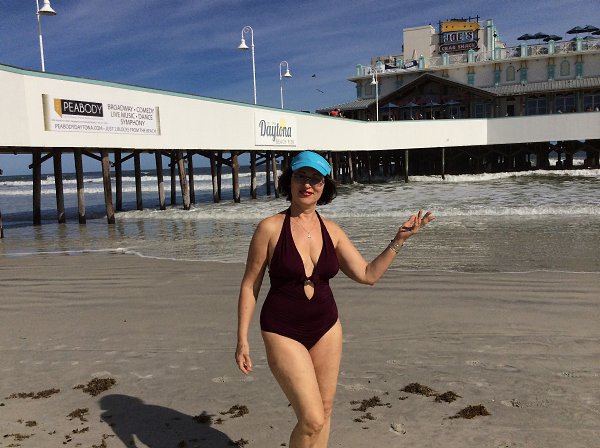 In 2016, Ukrainska Pravda reported that approximately 75 percent of the domestic media landscape was owned by four oligarchs: Viktor Pinchuk, Ihor Kolomoyskyy, Dmytro Firtash and Rinat Akhmetov. All four are billionaires with deep connections to the Kremlin and previous Ukrainian presidents, including Maidan-ousted Viktor Yanukovych. All four have portfolios spanning from oil to media, and all four face serious and credible allegations of corruption.
In 2016, Ukrainska Pravda reported that approximately 75 percent of the domestic media landscape was owned by four oligarchs: Viktor Pinchuk, Ihor Kolomoyskyy, Dmytro Firtash and Rinat Akhmetov. All four are billionaires with deep connections to the Kremlin and previous Ukrainian presidents, including Maidan-ousted Viktor Yanukovych. All four have portfolios spanning from oil to media, and all four face serious and credible allegations of corruption.
When I asked a man who lives in an occupied territory of Donbas about the news sources he used the most, he reassured me that they were all “pro-Ukrainian.” When I asked him to name some, he listed three TV channels: “NewsOne,” “Channel 112,” and “Inter.” According to a Kiev International Institute of Sociology (KIIS) sociological survey, those three channels are in the top ten most popular channels in Ukraine (not only in occupied territories): “Inter” ranked third behind channels “1+1” and “Ukraina,” “Channel 112” ranked sixth, and “NewsOne” was eighth. [8] Just how “pro-Ukrainian” are these channels? “NewsOne” and “Channel 112” are owned by one of the “Opposition Platform’s” leaders—Viktor Medvedchuk, the Kremlin’s most loyal ally and mouthpiece in Ukraine. Medvedchuk does not hide his close ties with President Putin: in 2004, Putin became godfather to Medvedchuk’s daughter, Daria. Medvedchuk also owns 80 percent of TV Channel “Inter.” Serhiy Lyovochkin, another oligarch belonging to the “Opposition Platform,” owns the remaining 20 percent of “Inter’s” shares.[9] It shouldn’t be a surprise to anyone then that during the campaign these “pro-Ukrainian” channels depicted the “Opposition Platform” as the only viable solution to securing Ukraine’s peace and economic prosperity.
[8] Just how “pro-Ukrainian” are these channels? “NewsOne” and “Channel 112” are owned by one of the “Opposition Platform’s” leaders—Viktor Medvedchuk, the Kremlin’s most loyal ally and mouthpiece in Ukraine. Medvedchuk does not hide his close ties with President Putin: in 2004, Putin became godfather to Medvedchuk’s daughter, Daria. Medvedchuk also owns 80 percent of TV Channel “Inter.” Serhiy Lyovochkin, another oligarch belonging to the “Opposition Platform,” owns the remaining 20 percent of “Inter’s” shares.[9] It shouldn’t be a surprise to anyone then that during the campaign these “pro-Ukrainian” channels depicted the “Opposition Platform” as the only viable solution to securing Ukraine’s peace and economic prosperity.
In October 2017, Ukraine passed a law requiring national and regional TV channels to produce at least 75 percent of content in the Ukrainian language; for local channels the quota was 60 percent.[10] The law was not enforced until a year later, October 2018, and according to law compliance reports,[11] “opposition” channels owned by pro-Russia oligarchs fully met the Ukrainian content quota. Thus, it is likely that the channels were popular not because of their use of the Russian language, but because they offered wider programming options, particularly in entertainment. When it came to political content, it is possible that viewers self-selected channels that reinforced opinions and positions they already supported.
Thus, it is likely that the channels were popular not because of their use of the Russian language, but because they offered wider programming options, particularly in entertainment. When it came to political content, it is possible that viewers self-selected channels that reinforced opinions and positions they already supported.
Promises of Social Protection
Many residents of non-government controlled areas of Ukraine are registered as internally displaced individuals and frequently travel across the line of contact to see their families or take care of basic business. While Kyiv recently restored payment of pensions to residents of occupied territories (after suspending them in 2015), many people continue to feel insecure about the Ukrainian government’s support. By contrast, Russia-backed “republics” have been paying pensions to residents of occupied territories with little documentation required. According to some witness reports, the DNR even introduced financial assistance for residents from Donbas territories “temporarily occupied by Ukraine. ” To reinforce the perception of protection, three days after Volodymyr Zelenskyy’s landslide victory in Ukraine’s presidential elections, President Putin signed a decree that would fast-track Russian passport applications for residents of occupied territories; he later announced that the procedure could be extended to all citizens of Ukraine, not just those living in self-proclaimed “republics.”[12] Despite an outcry of condemnation from both Ukrainian and international officials, many residents of Donbas rushed to take advantage of the procedure in order to be eligible for Russian social welfare payments. However, it is unclear whether Russia’s offer of support for Donbas residents is a short-term tactic or long-term commitment.
” To reinforce the perception of protection, three days after Volodymyr Zelenskyy’s landslide victory in Ukraine’s presidential elections, President Putin signed a decree that would fast-track Russian passport applications for residents of occupied territories; he later announced that the procedure could be extended to all citizens of Ukraine, not just those living in self-proclaimed “republics.”[12] Despite an outcry of condemnation from both Ukrainian and international officials, many residents of Donbas rushed to take advantage of the procedure in order to be eligible for Russian social welfare payments. However, it is unclear whether Russia’s offer of support for Donbas residents is a short-term tactic or long-term commitment.
Voter Turnout and Generational Gap
The 49.84 percent voter turnout in Ukraine’s last parliamentary election, while low, was actually consistent with previous parliamentary elections in Ukraine. Moreover, it was similar to the turnout in the last snap parliamentary election in 2014, following a government overhaul brought about by the Maidan Revolution. However, it is not so much the number of voters that is noteworthy, as the average voter age. My personal observations, combined with feedback from other observers and local election staff, revealed a fairly consistent pattern: polling stations on July 21 were filled with mostly the elderly. It is highly plausible that the “Opposition Platform’s” victory in eastern Ukraine might in fact have been correlated with the average voter age. According to exit polls, while age was not a factor in “The Servant of the People’s” popularity (the party won in all age brackets) when it came to the “Opposition Platform,” age did seem to play a role. Thus, among 18-49 year olds, less than 5 percent voted for the pro-Russian “Opposition Platform.” [13] In contrast, four times as many 60+ year olds did—20 percent. What these statistics may suggest is that had younger voters showed up at the ballot box in significantly greater numbers, the outcome of the election could have been different and the “Opposition Platform” might have missed the 5 percent threshold required to enter the Verkhovna Rada.
However, it is not so much the number of voters that is noteworthy, as the average voter age. My personal observations, combined with feedback from other observers and local election staff, revealed a fairly consistent pattern: polling stations on July 21 were filled with mostly the elderly. It is highly plausible that the “Opposition Platform’s” victory in eastern Ukraine might in fact have been correlated with the average voter age. According to exit polls, while age was not a factor in “The Servant of the People’s” popularity (the party won in all age brackets) when it came to the “Opposition Platform,” age did seem to play a role. Thus, among 18-49 year olds, less than 5 percent voted for the pro-Russian “Opposition Platform.” [13] In contrast, four times as many 60+ year olds did—20 percent. What these statistics may suggest is that had younger voters showed up at the ballot box in significantly greater numbers, the outcome of the election could have been different and the “Opposition Platform” might have missed the 5 percent threshold required to enter the Verkhovna Rada.
What can explain the low turnout on the part of younger voters in Ukraine? In addition to the fact that younger voters are universally less politically engaged than their older counterparts, in the context of the last parliamentary election in Ukraine, the turnout might have also been affected by the timing of the snap election. Not only is July a popular vacation time in Ukraine, but a hot summer weekend, in and of itself, might have made traveling to a polling station a less than appealing proposition. It is possible that had elections been held in late October, as scheduled, we would have seen a higher turnout of younger voters, and possibly a lower level of support for the “Opposition Platform.”
Early elections were beneficial not only for Zelenskyy who needed a like-minded parliament to implement his agenda, but arguably for the “Opposition Platform” as well, as the party would have been able to exploit the mobilization of their electorate in the presidential election. “Opposition Platform’s” Yuriy Boyko fared rather well in the first presidential round: he finished fourth nationwide with 11.67 percent of votes (less than 2 percent behind Yuliya Tymoshenko who finished third, and only about 4 percent points away from the first runner-up, Petro Poroshenko, who advanced into the second round of elections).[14] More impressively, Boyko was the top winner in Donetsk and Luhansk regions. Holding parliamentary elections as early as possible seemed in the interest of not only “The Servant of the People” but the “Opposition Platform” as well, considering the gains both parties had made in mobilizing the base during the presidential election.
“Opposition Platform’s” Yuriy Boyko fared rather well in the first presidential round: he finished fourth nationwide with 11.67 percent of votes (less than 2 percent behind Yuliya Tymoshenko who finished third, and only about 4 percent points away from the first runner-up, Petro Poroshenko, who advanced into the second round of elections).[14] More impressively, Boyko was the top winner in Donetsk and Luhansk regions. Holding parliamentary elections as early as possible seemed in the interest of not only “The Servant of the People” but the “Opposition Platform” as well, considering the gains both parties had made in mobilizing the base during the presidential election.
The convoluted nature of a mixed-system parliamentary election might have also deterred nascent voters ignorant about the process. With 22 parties and more than 3,000 candidates in the running, both from party lists and majoritarian districts, a voter was expected to navigate a rather wide and complex political field. Compounding the issue is the leader-centric political culture in Ukraine: perceptions of leaders as messiahs continue to dominate in people’s psyche and popular narratives. As a result, voters are more likely to get energized for presidential elections than they are for parliamentary elections. Ironically, in semi-presidential democracies, such as Ukraine, parliamentary elections actually play a more significant role than presidential elections, as legislators have numerous instruments at their disposal to check the executive power concentrated in a single individual or a single party. Ukrainians should thus approach voting in parliamentary elections more responsibly, as their votes may in fact directly translate into the quality of representatives they send to the Rada to serve as a check on the executive branch.
Compounding the issue is the leader-centric political culture in Ukraine: perceptions of leaders as messiahs continue to dominate in people’s psyche and popular narratives. As a result, voters are more likely to get energized for presidential elections than they are for parliamentary elections. Ironically, in semi-presidential democracies, such as Ukraine, parliamentary elections actually play a more significant role than presidential elections, as legislators have numerous instruments at their disposal to check the executive power concentrated in a single individual or a single party. Ukrainians should thus approach voting in parliamentary elections more responsibly, as their votes may in fact directly translate into the quality of representatives they send to the Rada to serve as a check on the executive branch.
Lastly, low voter turnout could also be explained by simple election fatigue. Even the originally scheduled election date at the end of October would have been strenuous on a population subjected to both presidential and parliamentary elections in the same year.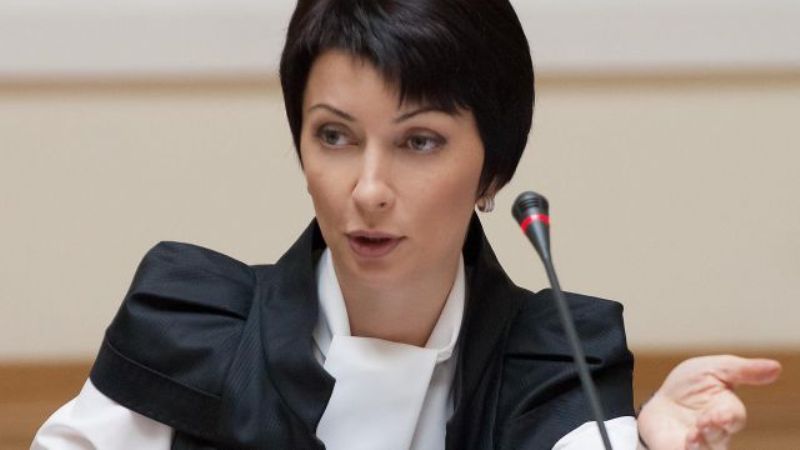 With snap parliamentary elections scheduled less than four months after the second round of the presidential election, voters’ attention span and enthusiasm might have naturally dwindled, especially if they were disappointed with the results of the presidential election in the first place. “My vote is not going to decide anything” and “I am against everyone” were the two most common explanations I had heard from people who did not vote. One would think 22 parties would provide people with a sufficient range of choices and yet — voter apathy was rife. Clearly, lack of trust in the political system trumped positive democratic dynamics, such as political pluralism, freedom of speech, and accessibility of elections.
With snap parliamentary elections scheduled less than four months after the second round of the presidential election, voters’ attention span and enthusiasm might have naturally dwindled, especially if they were disappointed with the results of the presidential election in the first place. “My vote is not going to decide anything” and “I am against everyone” were the two most common explanations I had heard from people who did not vote. One would think 22 parties would provide people with a sufficient range of choices and yet — voter apathy was rife. Clearly, lack of trust in the political system trumped positive democratic dynamics, such as political pluralism, freedom of speech, and accessibility of elections.
Protest Vote Holds
The last presidential elections in Ukraine can be interpreted as a protest vote against Petro Poroshenko rather than one in favor of Volodymyr Zelenskyy. Similarly, many supporters of the “Opposition Platform” seemed to have been motivated to vote in parliamentary elections as another opportunity to communicate their disdain for former president Poroshenko. The image of Poroshenko as the root cause of all Ukraine’s problems had registered prominently in people’s psyche: he had allegedly mismanaged the war, mismanaged the economy, and exacerbated social divisions. Following that “logic,” some voters had determined that the only effective antidote to Poroshenko was a party that could restore relations with Russia, thereby ending the war, improving the economy, and pacifying Russian speakers.
The image of Poroshenko as the root cause of all Ukraine’s problems had registered prominently in people’s psyche: he had allegedly mismanaged the war, mismanaged the economy, and exacerbated social divisions. Following that “logic,” some voters had determined that the only effective antidote to Poroshenko was a party that could restore relations with Russia, thereby ending the war, improving the economy, and pacifying Russian speakers.
Many people with whom I spoke reported feeling betrayed by Poroshenko. Many had lost their businesses, houses, and family members in occupied territories, but they were still expected to move on with their lives. Meanwhile, Poroshenko, as rich as he already was, failed to rise to the occasion and make a seemingly minor sacrifice—close his Roshen chocolate factory in Lipetsk, Russia and accept a relatively minor loss in exchange for unity with his country.[15] Poroshenko did eventually close his Lipetsk factory in April 2017, almost three years after the inception of the war.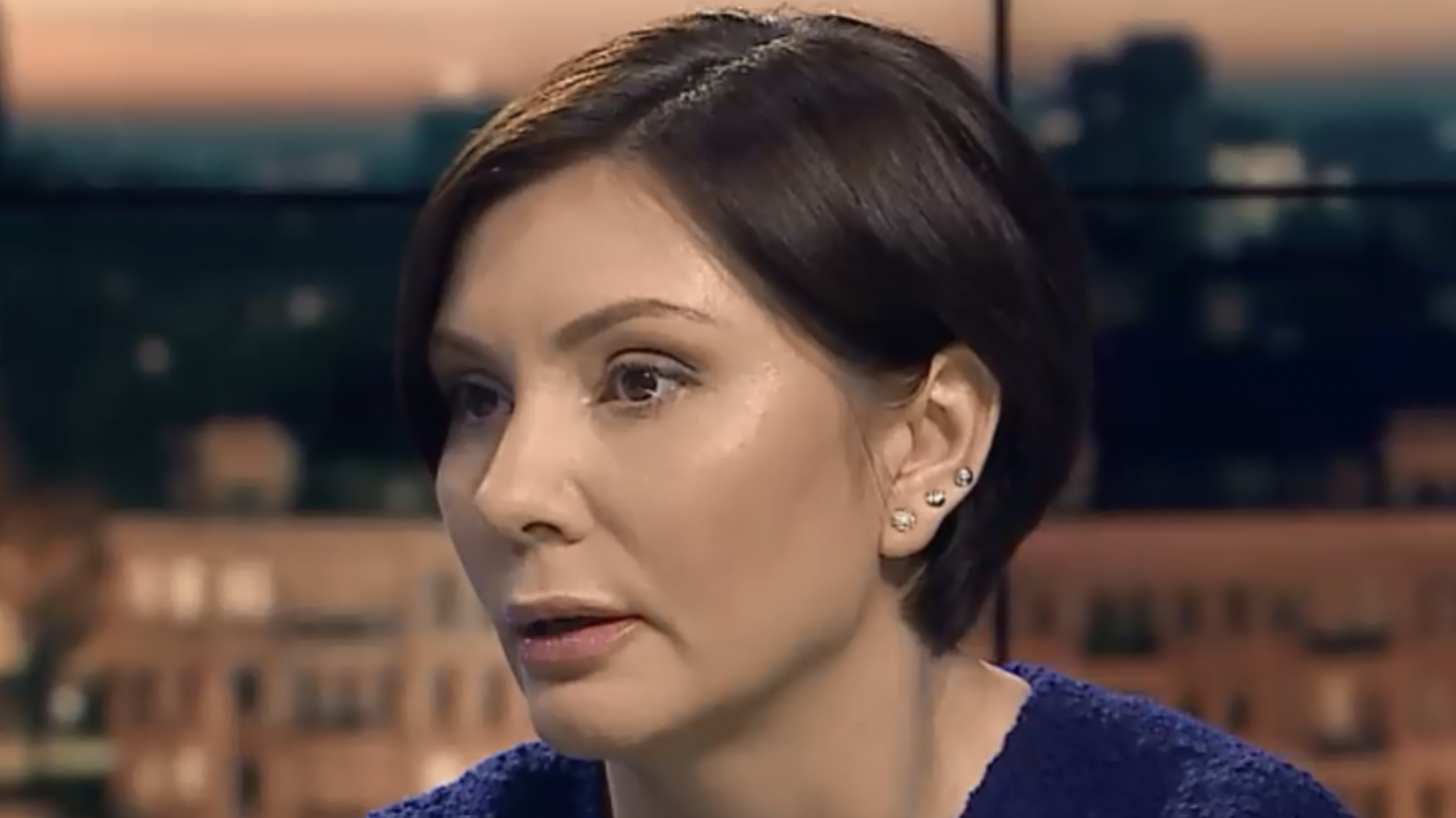 At that point, it was too little too late. As one Donbas official—who had lost three businesses and a house in occupied Horlivka—told me, he felt personally betrayed by Poroshenko. “Let it go, show that you stand together with your people and with your nation. You don’t need it [a factory in Russia]!”—he exclaimed lighting up another cigarette.
At that point, it was too little too late. As one Donbas official—who had lost three businesses and a house in occupied Horlivka—told me, he felt personally betrayed by Poroshenko. “Let it go, show that you stand together with your people and with your nation. You don’t need it [a factory in Russia]!”—he exclaimed lighting up another cigarette.
People’s overwhelming support for the “Opposition Platform” in eastern Ukraine was a function of numerous variables, but the most important of them was undoubtedly media’s manipulative propaganda and exploitation of war fatigue to promote the “peace by any means” doctrine. It is also apparent that economic drivers of voting behavior overpowered ideology, and in the east “trade with Russia” resonated prominently as a proxy for economic and social improvement.
Conclusion
The success of the “Opposition Platform” this past summer was limited to the region most adversely affected by the war with Russia, and likewise most susceptible to influence from Russian and Russian-aligned sources. Systemic gaps in Ukraine’s ability to secure elections on government-controlled territories are further testament to the near impossibility of holding fair elections in the occupied region of Donbas as proposed by the new peace agreement, known as the “Steinmeier formula.” Until Ukraine regains control of its international border with Russia and is able to provide a secure environment in the occupied territories for candidates, voters and election observers, the validity of any election in those areas will be gravely compromised. In the meantime, a great start would be for Kyiv to work more rigorously on securing all future elections on government-controlled territories. That great start has already begun: Ukraine’s parliament lifted prosecutorial immunity on all parliament members on September 3. Now the government has the power to investigate even sitting members of parliament, like Medvedchuk and Boyko, if there is sufficient evidence.
Systemic gaps in Ukraine’s ability to secure elections on government-controlled territories are further testament to the near impossibility of holding fair elections in the occupied region of Donbas as proposed by the new peace agreement, known as the “Steinmeier formula.” Until Ukraine regains control of its international border with Russia and is able to provide a secure environment in the occupied territories for candidates, voters and election observers, the validity of any election in those areas will be gravely compromised. In the meantime, a great start would be for Kyiv to work more rigorously on securing all future elections on government-controlled territories. That great start has already begun: Ukraine’s parliament lifted prosecutorial immunity on all parliament members on September 3. Now the government has the power to investigate even sitting members of parliament, like Medvedchuk and Boyko, if there is sufficient evidence.
[1]“Позачергові вибори народних депутатів України 2019 – ЦВК. ” [Early elections of people’s deputies of Ukraine 2019 – Central Election Commission (CEC)]. Retrieved August 1, 2019 from https://www.cvk.gov.ua/pls/vnd2019/wp310pt001f01=919.html
” [Early elections of people’s deputies of Ukraine 2019 – Central Election Commission (CEC)]. Retrieved August 1, 2019 from https://www.cvk.gov.ua/pls/vnd2019/wp310pt001f01=919.html
[2] “Medvedchuk, Boiko hold another round of ‘talks’ with Medvedev in Moscow,” Ukrinform, July 11, 2019. Retrieved August 2, 2019 from https://www.ukrinform.net/rubric-polytics/2737916-medvedchuk-boiko-hold-another-round-of-talks-with-medvedev-in-moscow.html
[3] “International Election Observation Mission Ukraine – Early Parliamentary Elections, 21 July 2019,” OSCE, Retrieved August 1, 2019 from https://www.osce.org/odihr/elections/ukraine/426257?download=true
[4] Vladimir Veselkin Facebook Page. Retrieved August 2, 2019 from https://www.facebook.com/vladimir.veselkin
[5] “ЦВК Забрала Повноваження у Скандальної ОВК №50, Куди Авіацією Перекидали Спецпризначенців.” [Central Election Commission removed power from scandalous election district #50, to which special forces were deployed. ]. TSN, August 2, 2019, Retrieved August 2, 2019 from https://tsn.ua/politika/cvk-zabrala-povnovazhennya-u-skandalnoyi-ovk-50-kudi-aviaciyeyu-perekidali-specpriznachenciv-1388883.html
]. TSN, August 2, 2019, Retrieved August 2, 2019 from https://tsn.ua/politika/cvk-zabrala-povnovazhennya-u-skandalnoyi-ovk-50-kudi-aviaciyeyu-perekidali-specpriznachenciv-1388883.html
[6] “ЦВК Забрала Повноваження у Скандальної ОВК №50, Куди Авіацією Перекидали Спецпризначенців.” [Central Election Commission removed power from scandalous election district #50, to which special forces were deployed.]…
[7] Pavlo Ostrovskyy, “Як фальсифікували вибори в 50 окрузі?” [How elections were falsified in district 50], Rubryka, August 5, 2019, https://rubryka.com/blog/falsyfikatsiya-vybory-v-50-okruzi/
[8] “Джерела інформації, медіаграмотність і російська пропаганда: результати всеукраїнського опитування громадської думки.” [Sources of information, media literacy and Russian propaganda: the results of national Ukrainian public opinion poll.], Detector Media, March 21, 2019. Retrieved August 2, 2019 from https://detector.media/infospace/article/164308/2019-03-21-dzherela-informatsii-mediagramotnist-i-rosiiska-propaganda-rezultati-vseukrainskogo-opituvannya-gromadskoi-dumki/
[9] “Medvedchuk reportedly buys 80 percent of TV Channel Inter from fugitive oligarch Firtash – media. ” UNIAN, June 30, 2019, Retrieved August 3, 2019 from https://www.unian.info/politics/10601421-medvedchuk-reportedly-buys-80-of-tv-channel-inter-from-fugitive-oligarch-firtash-media.html
” UNIAN, June 30, 2019, Retrieved August 3, 2019 from https://www.unian.info/politics/10601421-medvedchuk-reportedly-buys-80-of-tv-channel-inter-from-fugitive-oligarch-firtash-media.html
[10] “Закон “про мовні квоти” на ТБ в дії: що змінилось за перший тиждень?” [Law ‘on language quotas’ on TV in action: what has changed in the first week?], Ukrinform, October 18, 2018, Retrieved August 25, 2019 from
https://www.ukrinform.ua/rubric-society/2561557-zakon-pro-movni-kvoti-na-tb-v-dii-so-zminilos-za-persij-tizden.html
[11] ““Мовні квоти на телебаченні: результати моніторингу регіональних і місцевих телеканалів у перехідний період – жовтень 2017 – вересень 2018”” [Language quotas on television: the results of the monitoring of regional and local channels during transition time – October 2017-September 2018], The National Council of Television and Radio Broadcasting of Ukraine, October 2, 2018, Retrieved August 25, 2019 from https://www.nrada.gov.ua/movni-kvoty-na-telebachenni-rezultaty-monitoryngu-regionalnyh-mistsevyh-telekanaliv-u-perehidnyj-period-zhovten-2017-veresen-2018/
[12] “Речник Путіна заявив, що Росія видаватиме паспорти українцям на окупованому Донбасі попри невизнання Україною. ” [Putin’s advisor announced that Russia will give residents of occupied Donbas Russian passports despite Ukraine’s nonrecognition.], Hromadske, May 8, 2019, Retrieved August 3, 2019 from https://hromadske.radio/news/2019/05/08/rechnyk-putina-zayavyv-shcho-rosiya-vydavatyme-pasporty-ukrayincyam-na-okupovanomu-donbasi-popry-nevyznannya-ukrayinoyu
” [Putin’s advisor announced that Russia will give residents of occupied Donbas Russian passports despite Ukraine’s nonrecognition.], Hromadske, May 8, 2019, Retrieved August 3, 2019 from https://hromadske.radio/news/2019/05/08/rechnyk-putina-zayavyv-shcho-rosiya-vydavatyme-pasporty-ukrayincyam-na-okupovanomu-donbasi-popry-nevyznannya-ukrayinoyu
[13] “Слуга народу отримала найвищу підтримку серед молодих виборців — Національний екзит-пол.” [The Servant of the People received the highest level of support among young voters – National exit poll.], Nv.ua, July 30, 2019. Retrieved August 2, 2019 from https://nv.ua/ukr/ukraine/politics/rezultati-viboriv-v-radu-yak-golosuvali-viborci-riznih-vikovih-grup-novini-ukrajini-50034907.html
[14] “ЦВК Офіційно Оголосила Результати Першого Туру Виборів Президента України” [CEC announced the official results of the first round of presidential elections in Ukraine], Pryamyy, April 7, 2019, Retrieved August 28, 2019 from https://prm./https%3A%2F%2Fglavcom.ua%2Fimg%2Farticle%2F6120%2F79_main.png) ua/tsvk-ofitsiyno-ogolosila-rezultati-pershogo-turu-viboriv-prezidenta-ukrayini/
ua/tsvk-ofitsiyno-ogolosila-rezultati-pershogo-turu-viboriv-prezidenta-ukrayini/
[15] “Порошенко заверил, что не имеет бизнеса в России.” [Poroshenko reassured he did not have business in Russia.], UNIAN, September 28, 2018, Retrieved August 1, 2019 from https://www.unian.net/politics/10279716-poroshenko-zaveril-chto-ne-imeet-biznesa-v-rossii.html
‘Даже хуже, чем было’: Как провалила «революция достоинства» ЛГБТ-украинцев
21.11.2018
Кристофер Миллер
КИЕВ – Анастасия Ева Домани перечисляет несколько личных вех в своей 39-летней жизни. Ее свадьба была одна. Рождение дочери было другим.
Еще два были в тот день, когда она начала заместительную гормональную терапию в рамках своего перехода к становлению женщиной два года назад, и когда она, наконец, получила юридические документы, соответствующие ее гендерной идентичности.
Два последних события, сказала она Радио Свобода в недавнем интервью в киевском «Президент-отеле», возможно, никогда не были бы возможны или были бы значительно сложнее, если бы не другое, более публичное событие: восстание на Евромайдане в 2013–2014 годах.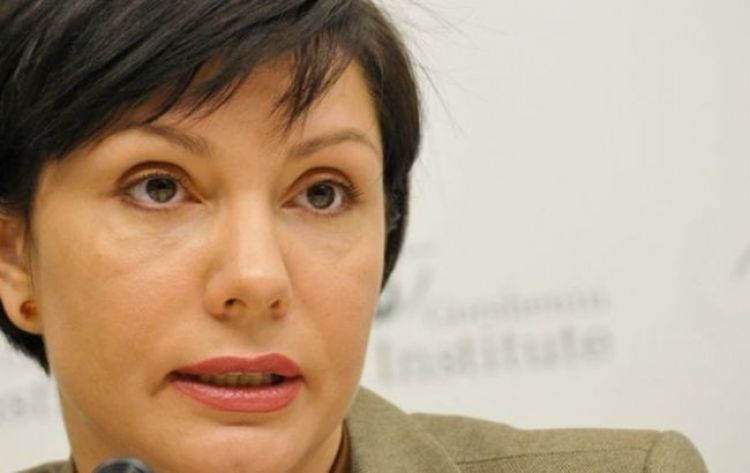 , известной многим украинцам как Революция Достоинства.
, известной многим украинцам как Революция Достоинства.
Действительно, среди сотен тысяч протестующих, которые терпели морозы в течение многомесячных продемократических уличных протестов, были десятки лесбиянок, геев, бисексуалов и трансгендеров (ЛГБТ) украинцев, в том числе Домани, который еще не вышел многим родственникам и друзьям и все еще публично использовала свое имя при рождении Александр.
Беспорядки и общественное возмущение в связи с последовавшим за этим подавлением в конечном итоге привели к свержению дружественного Москве президента в пользу прозападной администрации, склонив Украину и ее 45 миллионов жителей к европейским институтам и укрепив враждебность соседней России.
Протесты также пришлись на «действительно критический момент для ЛГБТ-сообщества», по словам Елены Шевченко, председателя киевской НПО по защите прав ЛГБТ Insight.
Незадолго до начала демонстраций 21 ноября 2013 года Верховная Рада Украины приняла в первом чтении законопроект, предусматривающий уголовную ответственность за распространение так называемой «гей-пропаганды».
«Это было хуже, чем законы в России», — сказал Шевченко, имея в виду закон, принятый ранее в том же году, который фактически запрещает публичное упоминание гомосексуализма. По российскому законодательству нарушителей могут наказать штрафами, а гей-прайды блокировать, а активистов задерживать.
«Но наши [украинские] депутаты рассматривали уголовную ответственность за так называемую «гей-пропаганду», то есть тюремное заключение», — сказал Шевченко. «Если бы Евромайдан не начался, мы были на 100% уверены, что он прошел бы».
Поэтому, когда протестующие свергли президента Виктора Януковича в феврале 2014 года и законопроект был отклонен, ЛГБТ-сообщество с оптимизмом ожидало, что в законы будут внесены поправки, чтобы обуздать дискриминацию, и что отношение общества изменится.
Это казалось более возможным, поскольку новое правительство в Киеве обещало ввести европейские стандарты и ценности.
«Там было много представителей ЛГБТИ… в 2013 и 2014 годах, протестовавших против репрессий правительства Януковича и в поддержку демократии, достоинства и более тесных отношений с Европой», — сказал Мэтью Шафф, директор офиса Freedom House в Украине.
Но Домани и многие другие ЛГБТ-украинцы по-прежнему сталкиваются с преследованиями и предрассудками. Они жалуются, что права и свободы, которых требовали протестующие на киевской площади Независимости или просто на Майдане, были проигнорированы и проигнорированы.
Домани был одним из первых, кто прислушался к публичным призывам собраться на Майдане. Первое, что она сделала, — добавила свое имя и контактную информацию в список, где украинцы, прибывающие из-за пределов столицы, могли искать жилье, чтобы оставаться в Киеве во время протестов.
Следующие 93 дня или около того, по ее словам, она делила свою скромную киевскую квартиру с 10-15 людьми, в зависимости от недели.
Когда Домани была на Майдане, ее часто можно было встретить на баррикадах вместе с другими протестующими, когда они сталкивались с полицией и провластными головорезами, известными как «титушки», среди пылающих пожаров и мороза.
Она в деталях вспомнила, как озверевший ОМОН «Беркут» избивал протестующих дубинками или резал их боевыми патронами из дробовиков и снайперских винтовок.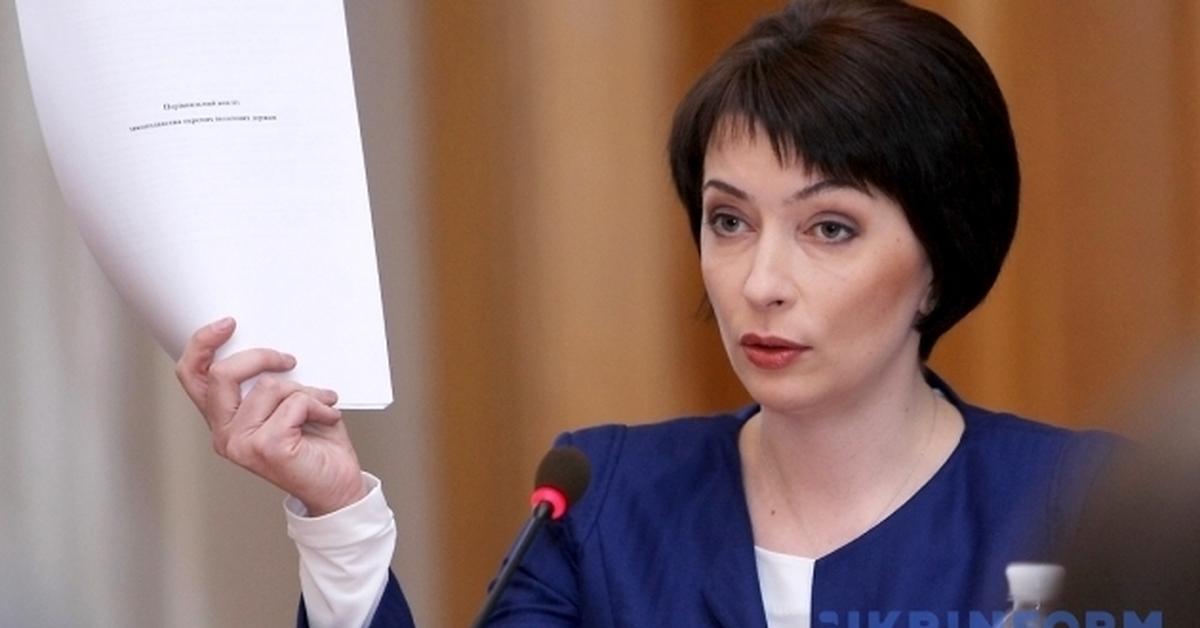
«Я видел так много трупов», — сказал Домани о потерях, кульминацией которых стал самый смертоносный день столкновений на Евромайдане 20 февраля 2014 года, когда погибло около 70 протестующих.
Домани также был активен с Автомайданом, мобильным крылом протестного движения Евромайдан. Она часто разъезжала на машине с группой по Киеву, собирая покрышки, чтобы сжечь на Майдане, и бутылки с бензином для коктейлей Молотова, которыми во время более ожесточенных столкновений швыряли в милицию.
«Это было страшно», — сказала она недавно.
Но поддержка, которую она чувствовала со стороны окружающих, поддерживала ее. По словам Домани, протестующие были едины в своем желании свергнуть коррумпированное и жестокое правительство.
Затем, по ее словам, казалось, что, возможно, ситуация изменилась — для страны и, возможно, для трансгендерных людей.
После этого произошли некоторые положительные изменения.
Якобы проевропейское правительство во главе с президентом Петром Порошенко подписало Соглашение об ассоциации с Европейским Союзом, отказ от которого Януковичем в первую очередь стал катализатором протестов. Затем последовала поправка к Трудовому кодексу Украины, запрещающая увольнять кого-либо по признаку сексуальной ориентации.
Затем последовала поправка к Трудовому кодексу Украины, запрещающая увольнять кого-либо по признаку сексуальной ориентации.
Впоследствии каждый июнь в Украине также проводились марши ЛГБТ-прайда, которые, несмотря на то, что на них нападали ультраправые активисты, в основном защищались полицией страны. Это помогло привлечь внимание к правам ЛГБТ, которых раньше не существовало.
Министерство здравоохранения, возглавляемое уроженкой США Уланой Супрун, возможно, зашло дальше всех, по крайней мере, в отношении трансгендерных украинцев.
В конце 2016 года министерство предприняло важный шаг, отменив законы, которые заставляли людей, которые хотели изменить пол и быть юридически признанными таковыми, проходить обширное психиатрическое наблюдение, разводиться со своими супругами, проходить стерилизацию и подчиняться гендерным операция по переназначению.
Сегодня этот процесс остается трудным, но уже лучше, сказала Домани, которая сама прошла через это. Пациенты по-прежнему должны проходить психиатрическую экспертизу, но она менее навязчива, а другие требования были сняты.
Пациенты по-прежнему должны проходить психиатрическую экспертизу, но она менее навязчива, а другие требования были сняты.
Домани, который является одним из самых заметных трансгендерных активистов Украины, сказал, что с тех пор не менее 50 трансгендеров получили юридические сертификаты, подтверждающие их изменение пола.
Но Минздрав представляет собой исключение, когда речь идет о правах ЛГБТ в Украине, а не правило.
Многие ЛГБТ-украинцы не видят особого прогресса и даже предупреждают о его обратном движении.
«Я бы сказал, что даже хуже», — сказал Шевченко, председатель общественной организации «Инсайт». Это было накануне марша, организованного ее группой в ознаменование Международного дня памяти трансгендеров 18 ноября.
Хотя она хвалила Министерство здравоохранения за его работу по помощи трансгендерным украинцам, она утверждала, что министерства юстиции и социальных дел не поддерживали ни их, ни ЛГБТ-сообщество в целом. И она предупредила, что гомофобия и трансфобия остаются безудержными.
Шевченко посетовал на отсутствие защиты со стороны украинской полиции на всех мероприятиях, кроме ежегодного марша Прайда в июне.
«Прайд — исключение, потому что Украине нужен один день в году для защиты прав ЛГБТ», — сказала она. «Но на самом деле речь идет не о правах ЛГБТ, а о том, чтобы показать картину этого западным партнерам».
Однако остальные 364 дня в году ЛГБТ-сообщество сталкивается с угрозой физического нападения и не имеет надлежащей защиты, гарантированной властями в соответствии с законодательством Украины, добавила она.
Например, мало что было сделано для того, чтобы помешать ультраправым экстремистам организовывать «гей-сафари», когда они используют социальные сети, чтобы заманивать ЛГБТ-людей на встречу, а затем нападать и унижать их перед камерой.
«Они говорят: «Это ЛГБТ-сообщество ведет себя провокационно», — сказал Шевченко, имея в виду полицию.
В некоторых случаях, когда Insight просила полицию расследовать угрозы, по ее словам, офицеры говорили группе в непристойных и недвусмысленных выражениях: «Мы ничего не можем сделать».
События на следующий день и накануне пятилетней годовщины протестов на Евромайдане, похоже, подтверждают ее оценку.
Когда около 40 ЛГБТ-активистов, в том числе Шевченко и Домани, собрались возле станции метро «Киевский университет» на марш, на них напали ультраправые радикалы, которые забросали их дымовыми шашками и распылили перцовый баллончик. Две молодые ЛГБТ-женщины были избиты, а канадский репортер, освещавший это событие, получил удар кулаком в лицо.
Вместо того, чтобы оттолкнуть нападавших, полиция насильно вывела ЛГБТ-активистов и приказала им спускаться по эскалатору внутри станции метро.
Домани, выразивший разочарование по поводу того, что марш был прерван, заявил, что полицейские вели себя как радикалы, «но в форме».
«Если их раздеть, — сказала она с легким смешком, — и спросить, что они думают о [ЛГБТ], они скажут о нас то же самое, что и о крайне правых экстремистах».
Ссылка на оригинальный материал на сайте RFE/RL
Уведомление об авторских правах: Copyright (c) 2007-2009. RFE/RL, Inc. Перепечатано с разрешения Radio Free Europe/Radio Liberty, 1201 Connecticut Ave., N.W. Вашингтон, округ Колумбия, 20036 г.
RFE/RL, Inc. Перепечатано с разрешения Radio Free Europe/Radio Liberty, 1201 Connecticut Ave., N.W. Вашингтон, округ Колумбия, 20036 г.
Украина: Янукович – президент по умолчанию?
Лидер пророссийской оппозиции Виктор Янукович с небольшим перевесом одержал победу на президентских выборах в Украине 7 февраля — это не столько его достижение, сколько неспособность оранжевого лагеря объединиться и выполнить свои обещания. Янукович был единственной альтернативой дискредитировавшим себя действующему президенту, поэтому ему суждено было стать президентом Украины «по умолчанию».
Виктор Янукович: «по умолчанию» было суждено стать президентом Украины (фото с сайта Партии регионов).
Многие в Украине сомневаются в легитимности победы Януковича с его 48,95% против 45,47% голосов Тимошенко. Поддержка лидера Партии регионов не увеличилась: с последних президентских выборов в 2004 году он потерял сотни тысяч голосов. В отличие от всех предыдущих украинских президентов, Януковичу не удалось получить абсолютного большинства во втором туре.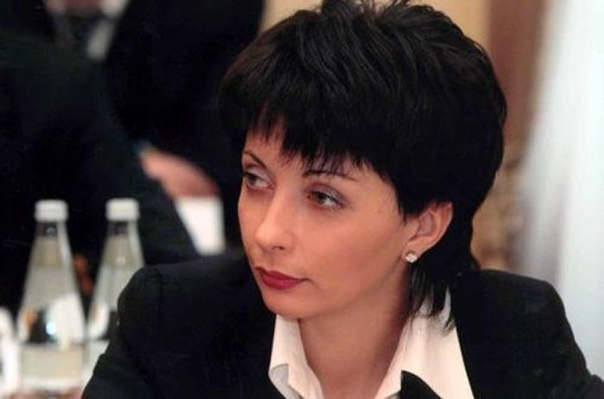 За вариант «против всех», который стоял в бюллетене чуть ниже фамилий Януковича и Тимошенко, фактически было отдано более миллиона голосов.
За вариант «против всех», который стоял в бюллетене чуть ниже фамилий Януковича и Тимошенко, фактически было отдано более миллиона голосов.
Героев на этих выборах у украинцев не было, но они точно знали, против кого голосовать — против нынешнего президента Виктора Ющенко и премьер-министра Юлии Тимошенко, бывших союзников по Оранжевой революции и с тех пор заклятых врагов.
Ющенко был унижен, получив немногим более 5% голосов, что далеко от 52%, которые он набрал в 2004 году. Разочаровывающий результат первого тура Тимошенко (10% отставание от лидера оппозиции) оставил ей мало надежды на победу во втором туре.
Оранжевые лидеры, может быть, и были отвергнуты украинцами, но не Оранжевая революция. Янукович не убедил большинство украинцев повернуться к России или отказаться от демократии. В предвыборной президентской кампании вопрос геополитического выбора между Россией и Западом фактически отодвигался на второй план гораздо более острыми экономическими проблемами.
Оранжевый лагерь разбил надежды людей на «украинское чудо» — интеграцию с ЕС, ликвидацию коррупции и посадку всех «бандитов за решетку». Теперь все, что ожидается от Януковича, — это «стабильная Украина», его главное предвыборное обещание.
«По крайней мере, Янукович не врет и ничего не обещает, в отличие от Тимошенко», — говорит Татьяна Мельниченко, детский психолог из Киева. «Люди в его окружении взяли его под контроль, а Ющенко буйствовал, и никто ничего не мог сказать».
Янукович не предложил новых решений проблем Украины, которые могли бы привлечь новых сторонников. В течение последних пяти лет он критиковал ссорившееся оранжевое правительство, за исключением того короткого периода, когда он сам был премьер-министром. Он взрастил свой традиционный электорат с востока и юга Украины, многие из которых считали, что его президентство было украдено в 2004 году, и рассматривали выборы 2010 года как шанс отомстить. Стратегия Януковича на этих выборах заключалась не в том, чтобы отпугнуть избирателей.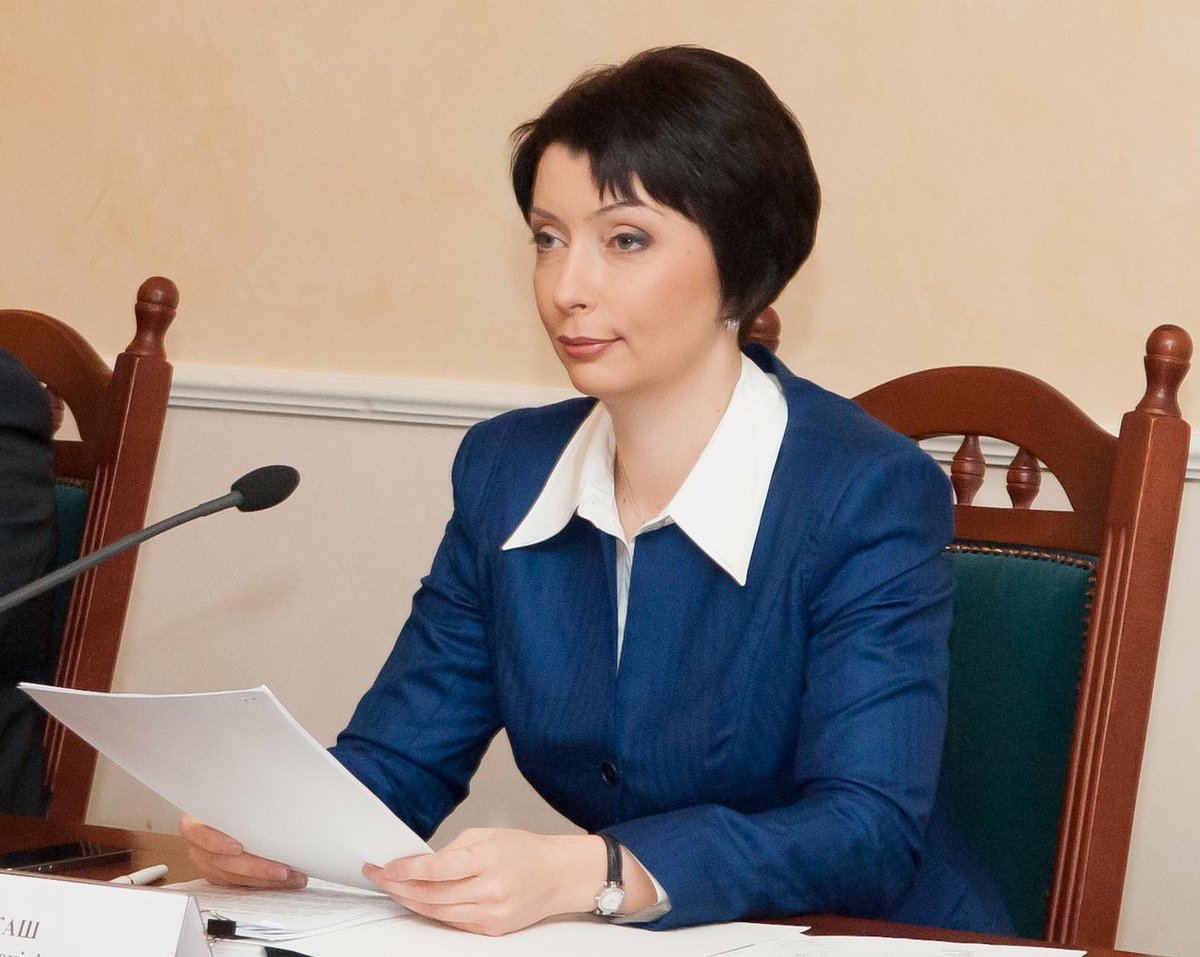 Он выглядел собранным и доброжелательным, в то время как агрессивное и нервное поведение Тимошенко работало против нее.
Он выглядел собранным и доброжелательным, в то время как агрессивное и нервное поведение Тимошенко работало против нее.
Несмотря на то, что предвыборная кампания была конкурентной, выбор всегда был между двумя фаворитами: Тимошенко и Януковичем. Оба они были слишком знакомы, чтобы кто-то мог питать к ним какие-либо иллюзии. Уныние избирателей отражено в анекдоте: «Есть новости хорошие и плохие: хорошая новость в том, что Юлия Тимошенко не стала президентом, плохая новость в том, что стал Виктор Янукович».
Эти выборы были лишены таких положительных эмоций, как надежда и вера. Люди голосовали против, а не за. Тимошенко воспользовалась этим, особенно в Западной и Центральной Украине, которые известны своей антиянуковичской позицией. Ее предвыборные объявления: «Голосуя против всех, вы голосуете за Януковича» или «Оставаясь дома — вы голосуете за Януковича» помогли увеличить явку в ее пользу.
Николай Смерека, профессор университета из родины Тимошенко в Киевской области, возможно, больше не является ярым сторонником украинской премьер-министра Евы Перон, но его негативные взгляды на Януковича — это как раз то, что нужно Тимошенко в ее поствыборной борьбе. «Как мы можем позволить «Хаму» стать президентом сейчас, если мы уже однажды отвергли его? Не тот ли это человек, который фальсифицировал себя на выборах 2004 года? Разве он не тот самый бывший каторжник, безграмотный клоун и русская пешка, который опозорит нас в мире?» сокрушается г-н Смерека.
«Как мы можем позволить «Хаму» стать президентом сейчас, если мы уже однажды отвергли его? Не тот ли это человек, который фальсифицировал себя на выборах 2004 года? Разве он не тот самый бывший каторжник, безграмотный клоун и русская пешка, который опозорит нас в мире?» сокрушается г-н Смерека.
В 2004 году многие украинцы считали Януковича комбинацией связанного с мафией Берлускони и склонного к оплошностям Буша. Если бы олигархические кланы Донецка выдвинули в то время менее противоречивого кандидата, революции, скорее всего, не произошло бы.
С тех пор американские политконсультанты, щедро финансируемые стальным магнатом Ринатом Ахметовым, изменили имидж Януковича. Получив повышение, Янукович заговорил на литературном украинском языке и отказался от криминального жаргона.
Янукович был еще пророссийским кандидатом. Он пообещал русскому языку статус официального. Он также заверил Россию, что ее флоту будет разрешено остаться, когда в 2017 году истечет срок аренды украинских баз на Черном море. Он признает независимость Южной Осетии и Абхазии и на неопределенный срок отложит членство в НАТО.
Он признает независимость Южной Осетии и Абхазии и на неопределенный срок отложит членство в НАТО.
В то же время Янукович пытался смягчить свою «пророссийскую» позицию. Он проявил интерес к продвижению позиций Украины в ЕС, почувствовав экономические выгоды, которые могут исходить от Запада. Он также предложил Москве новую сделку по транзитным газопроводам, которая разделит право собственности поровну между Украиной, Россией и ЕС, вместо того, чтобы, как многие опасались, предоставить России большую долю в этом предприятии.
Прогресс Януковича в понимании украинских национальных интересов (каким бы иллюзорным он ни был) не позволил Тимошенко воссоздать четкие разногласия 2004 года, когда прозападный демократ боролся с пророссийским самодержцем. Эта неудача стоила ей выборов.
Вместо этого Тимошенко была слишком умна для ее же блага. Пытаясь заигрывать с Россией, она потеряла избирателей на Западной Украине. Она также разрушила свой имидж демократической фигуры.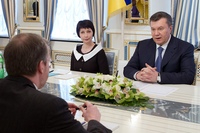 Летом 2009 года она объединилась с Януковичем в попытке узурпировать власть через поправку к конституции, которая отменила бы всенародные выборы президента и отложила бы парламентские выборы до 2014 года. момент.
Летом 2009 года она объединилась с Януковичем в попытке узурпировать власть через поправку к конституции, которая отменила бы всенародные выборы президента и отложила бы парламентские выборы до 2014 года. момент.
Тимошенко построила свою кампанию на заявлениях о том, что она не будет уклоняться от ответственности и продолжит работать премьер-министром, несмотря на неблагоприятные условия. Критики обвинили ее в использовании своего положения в правительстве и государственных денег для оказания политического давления на выборах.
Однако другие относятся к ней более благосклонно. «Она гораздо более харизматичный политик, чем Янукович», — отмечает Сергей Киселев, политолог из Школы политического анализа Могилянской академии в Киеве. «Она показала неожиданно хороший результат в этой гонке, учитывая, что ее считали действующим президентом и считали ответственной за падение Украины во время мирового экономического кризиса. Если бы она была в оппозиции, то легко победила бы Януковича».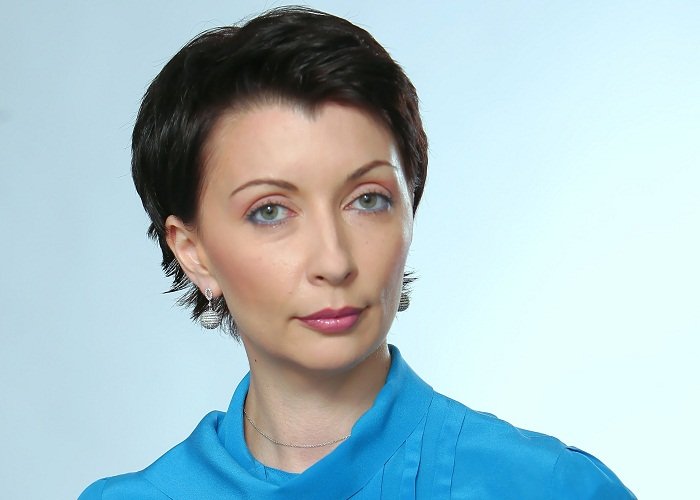

Leave a Reply